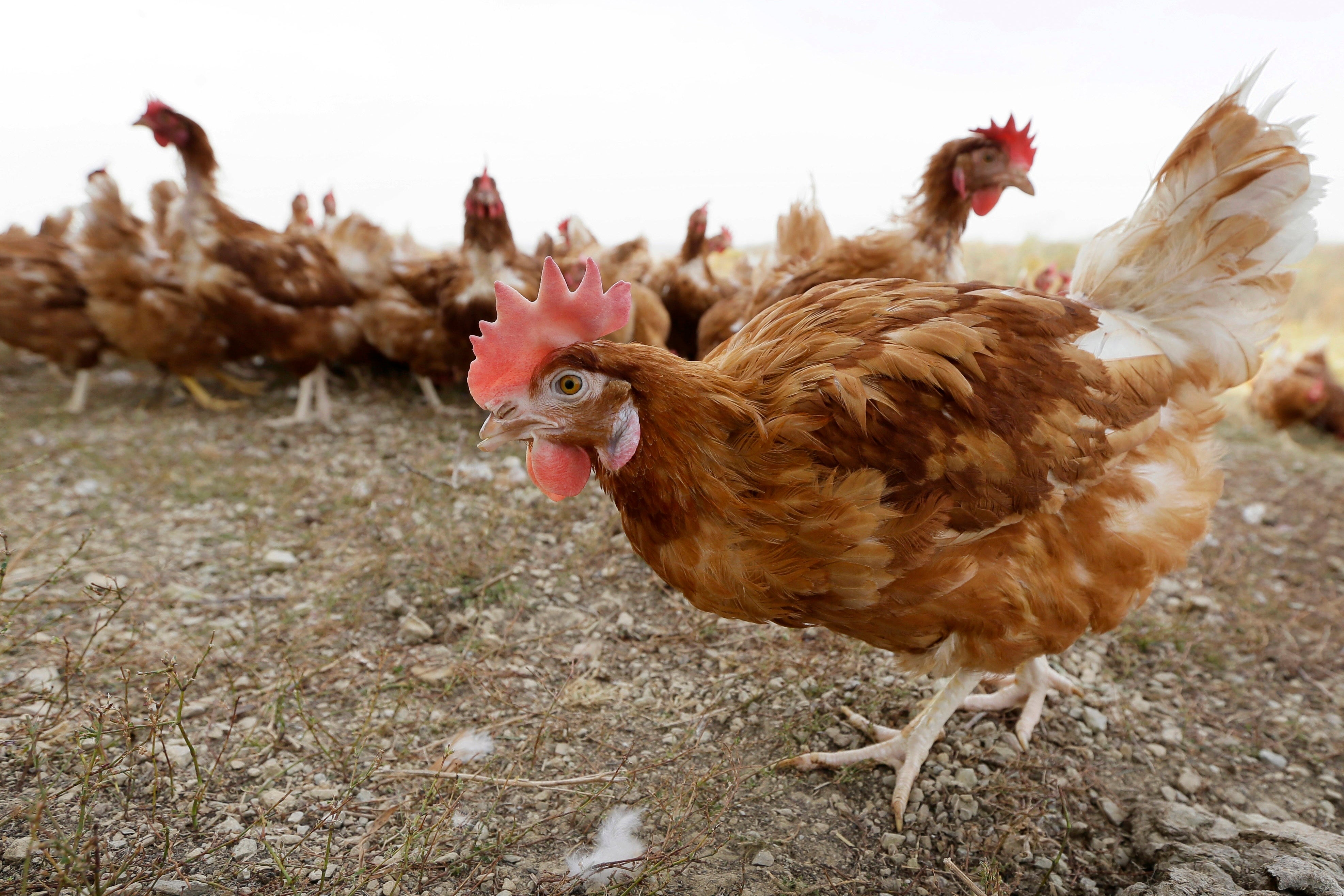Free-range eggs return to UK supermarkets after more than a month
The Department for Environment, Food and Rural Affairs added that all other safety measures to control bird flu remain in place

Your support helps us to tell the story
From reproductive rights to climate change to Big Tech, The Independent is on the ground when the story is developing. Whether it's investigating the financials of Elon Musk's pro-Trump PAC or producing our latest documentary, 'The A Word', which shines a light on the American women fighting for reproductive rights, we know how important it is to parse out the facts from the messaging.
At such a critical moment in US history, we need reporters on the ground. Your donation allows us to keep sending journalists to speak to both sides of the story.
The Independent is trusted by Americans across the entire political spectrum. And unlike many other quality news outlets, we choose not to lock Americans out of our reporting and analysis with paywalls. We believe quality journalism should be available to everyone, paid for by those who can afford it.
Your support makes all the difference.Free-range eggs are now available in the UK again more than a month after their sale was suspended over avian flu outbreaks.
Previously, British hens had spent the last four months indoors after all birds, including free-range ones, were ordered to be kept indoors to control the avian flu outbreak last November. Since October 2021, over 100 cases of bird flu have been reported in the UK so far.
Under EU law, free-range laying hens can be kept indoors for a maximum period of 16 weeks for their eggs to still be labelled free-range. However, that period expired on 21 March when it was announced that free-range eggs will be labelled ”barn eggs”, or the name given to eggs produced by permanently indoor birds.
Free-range eggs, which account for over half of all eggs produced in the UK, come from hens which enjoy unrestricted access to the outdoors during the day.
However, the Department for Environment, Food and Rural Affairs said that other safety measures will remain in force.
The four veterinary chiefs in a joint statement to bird keepers said that “scrupulous biosecurity remains the most critical defence” to ensure the health of their hens.
“The recent cases of avian influenza show that it’s more important than ever for bird keepers to remain vigilant for signs of disease and maintain stringent standards of biosecurity,” the statement read.
British Free Range Egg Producers Association’s chief executive Robert Gooch, however told the BBC that while it was “really good news”that supermarkets can stock free-range eggs, “lifting the housing order does not solve the crisis facing the egg sector.”
He indicated huge hikes in energy, transport, feed and labour costs as significant challenges for bird keepers.
The ongoing Russia-Ukraine war has adversely impacted the price of bird feed, the BBC reported, since the eastern European countries are among the world’s largest agriculture and food producers.
The price of wheat – a crucial ingredient in feed – has risen since Russia’s invasion of Ukraine began in February.
One poultry farmer quoted by the publication revealed it cost him an additional £400 per day to feed his hens.
Join our commenting forum
Join thought-provoking conversations, follow other Independent readers and see their replies
Comments